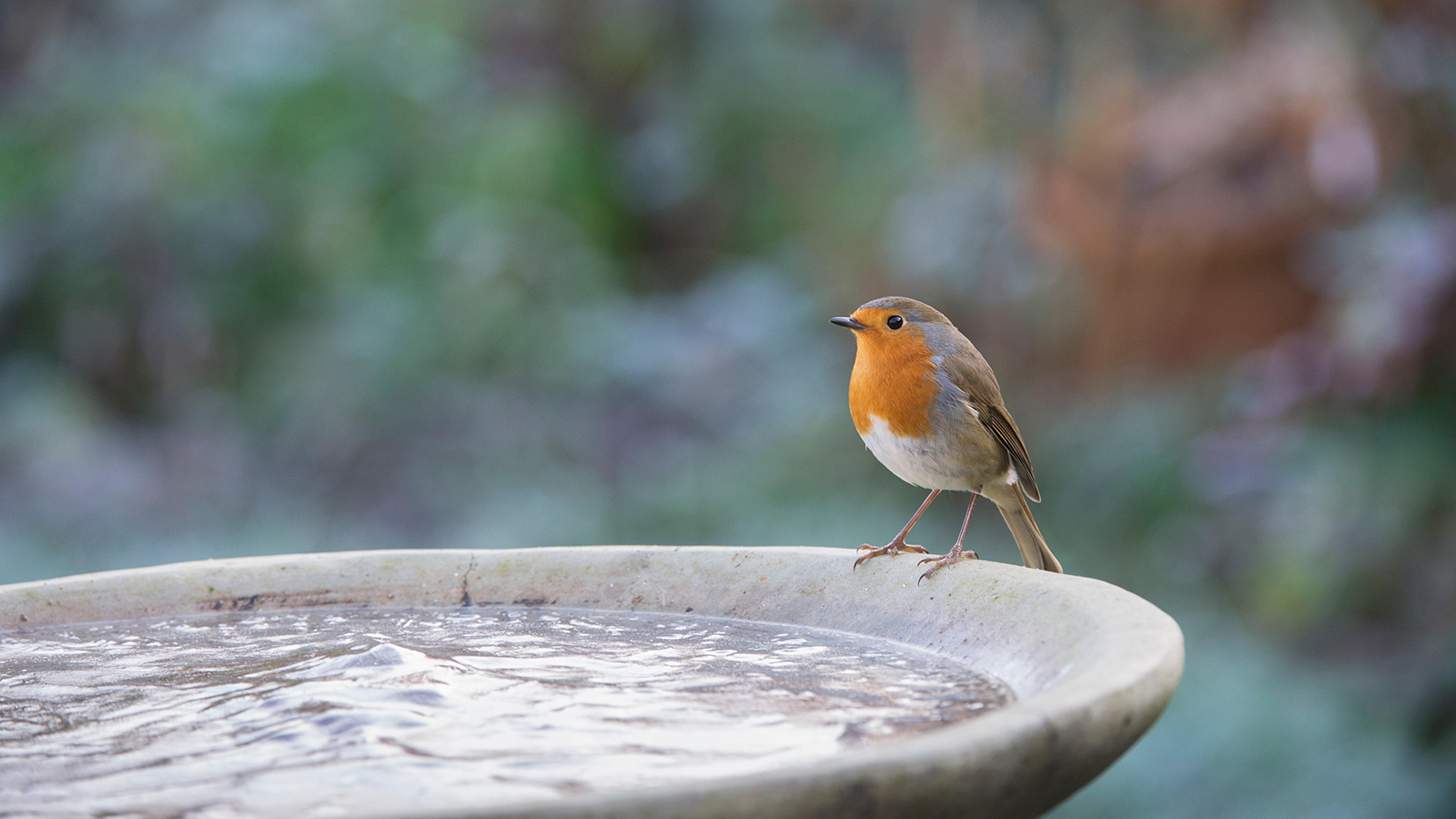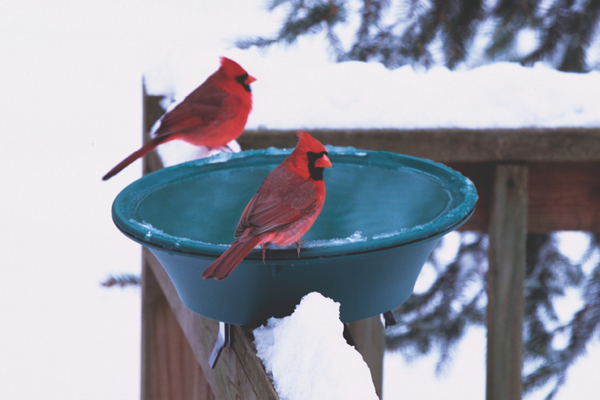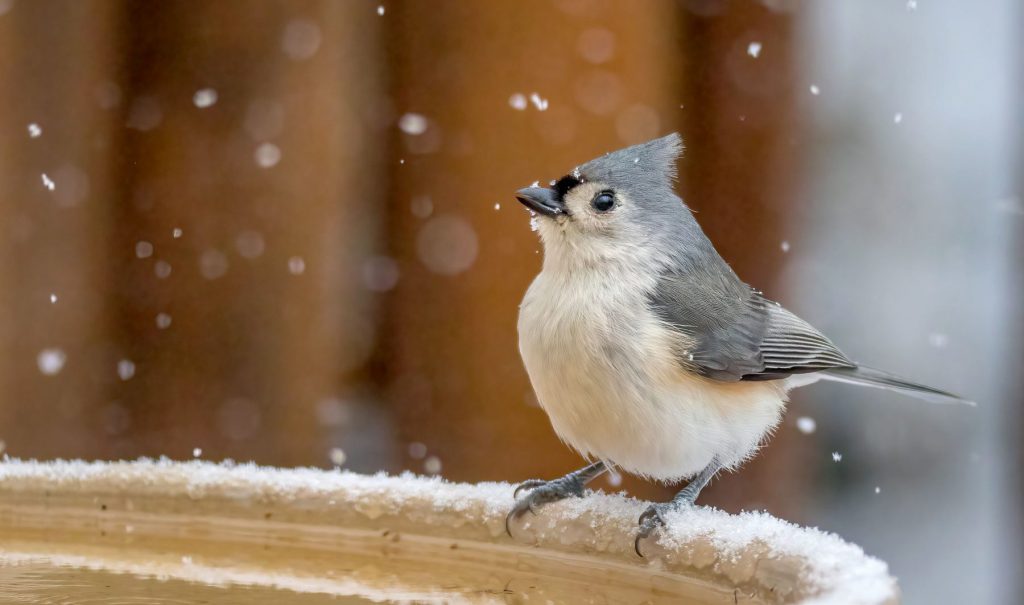When winter arrives, your feathered friends need water just as much as they do in warmer months. But cold weather makes it tricky to keep water from freezing.
If you want to help birds stay healthy and hydrated during the chilly season, you need the right tips and tricks. You’ll discover simple, effective ways to provide fresh water to birds all winter long. Keep reading to learn how you can make a difference for your backyard visitors when the temperature drops.
Challenges Birds Face In Winter
Winter brings many challenges for birds. Cold temperatures and snow make survival harder. Finding food becomes tough. Water sources freeze, limiting access to drinking water. Understanding these challenges helps in supporting birds during winter.
Cold Weather Impact
Cold weather forces birds to use more energy. They need extra food to stay warm. Feathers help, but extreme cold can be dangerous. Birds often fluff their feathers to trap heat. Some species migrate, but many stay and face harsh conditions.
Frozen Water Sources
Water is essential for birds to survive. In winter, ponds and lakes freeze solid. This limits birds’ access to fresh water. Without water, birds can become dehydrated. Ice can also trap birds, causing stress and danger.

Credit: www.allaboutbirds.org
Choosing The Right Water Source
Choosing the right water source for birds during winter is more than just filling a dish with water. Birds need easy access to clean, unfrozen water to stay hydrated and healthy in cold weather. Your choice of water source can make a big difference in attracting birds and helping them survive harsh conditions.
Types Of Bird Baths
Not all bird baths work well in winter. Shallow baths with smooth edges are best because they allow birds to drink and bathe without slipping. Materials like ceramic, metal, or plastic can be used, but some hold heat better than others.
Consider a bath that’s easy to clean and refill. Raised bird baths protect water from ground predators and debris. You might also try a hanging bath or a fountain with moving water, which helps prevent freezing.
- Shallow, wide bowls:Ideal for small birds to perch safely.
- Raised baths:Keep water cleaner and safer from animals.
- Fountains or drippers:Moving water resists freezing longer.
Heated Water Options
Heated bird baths are a game-changer in winter. They keep water from freezing, making it available all day long. You can find electric heated bases or floating heaters that gently warm the water without harming birds.
Using a heated bath means you don’t have to refill as often, especially on freezing days. But safety is important—make sure cords are protected and the heater is designed for outdoor use. Have you ever noticed how birds flock around a warm water source? It’s a clear sign of how much they need it.
- Electric heated bases:Fit under the bath to keep water liquid.
- Floating heaters:Sit in the water and prevent ice formation.
- Solar-powered heaters:Eco-friendly and cost-effective options.
Maintaining Water Quality
Keeping water clean and fresh is crucial for birds during winter. Birds need safe water to stay healthy and hydrated. Dirty or frozen water can harm them or stop them from drinking. Regular care helps maintain water quality. It also keeps birds coming back to your feeder.
Preventing Ice Formation
Ice blocks birds from drinking water. Use a heated bird bath or water heater to stop ice. Place the water container in a sunny spot. Change water often to keep it from freezing. Small fountains or drip systems also help by moving water. Moving water freezes slower than still water.
Regular Cleaning Tips
Clean bird baths and containers every few days. Remove dirt, algae, and old water to stop germs. Use warm water and a scrub brush for cleaning. Avoid strong soaps or chemicals that can harm birds. Rinse well to remove any soap residue. Dry the container before refilling it with fresh water.

Credit: www.homesandgardens.com
Best Locations For Bird Watering
Choosing the right location for bird watering in winter affects how often birds visit. Birds need easy access to water that stays unfrozen and safe from predators. Picking the best spots helps birds stay hydrated and healthy during cold months.
Safe And Accessible Spots
Place water sources where birds feel safe. Avoid busy areas with lots of foot traffic or pets. Choose spots near trees or bushes for quick shelter. Keep water close to where birds eat or rest. This reduces their risk of danger.
Sheltered Areas
Find spots protected from wind and harsh weather. Sheltered areas keep water from freezing too fast. Use natural covers like evergreens or build small barriers. This helps maintain liquid water longer. Birds prefer calm places to drink without disturbance.
Additional Tips For Bird Survival
Providing water in winter helps birds survive cold days. Along with water, other supports increase their chance to thrive. Simple actions create a safe and healthy environment for wild birds. These additional tips improve their comfort and energy during harsh weather.
Supplementing Food
Birds need more energy in winter to stay warm. Supply high-energy food like seeds, suet, and nuts. Use feeders that keep food dry and accessible. Scatter some food on the ground to help ground-feeding birds. Change food regularly to avoid mold or spoilage. Clean feeders often to prevent disease spread.
Providing Shelter
Birds need shelter to protect from wind and cold. Plant dense bushes or leave leaf piles for natural hiding spots. Install birdhouses or roosting boxes with small openings. Place shelters in quiet, safe areas away from predators. Avoid disturbing resting birds. Adding straw or wood shavings inside helps insulate the shelter.

Credit: boropulse.com
Frequently Asked Questions
How Can I Prevent Bird Water From Freezing In Winter?
Use heated birdbaths or add a birdbath heater to keep water liquid. Change water daily to ensure freshness. Place birdbaths in sunny, sheltered spots to reduce freezing.
What Type Of Water Is Best For Birds In Winter?
Provide fresh, clean, room-temperature water. Avoid using hot or freezing water. Clean water helps birds stay hydrated and healthy during cold months.
How Often Should I Change Bird Water In Winter?
Change bird water daily to prevent ice formation. Fresh water encourages birds to drink regularly. Regular cleaning also prevents bacteria buildup.
Where Is The Best Place To Put Bird Water In Winter?
Place water near shelter or feeders for easy access. Choose sunny or wind-protected spots to keep water from freezing. Avoid open, windy areas.
Conclusion
Birds need water in winter for survival. They struggle to find it. Offering water can help them thrive. Use a heated birdbath or change water often. Keep the water clean and accessible. This small effort supports local wildlife. Enjoy watching birds visit your yard daily.
Your actions make a difference. Create a welcoming environment for these feathered friends. Nature benefits from your kindness. Simple steps lead to a healthier ecosystem. Birds thank you for your help. Keep up the good work, and enjoy the beauty they bring.

